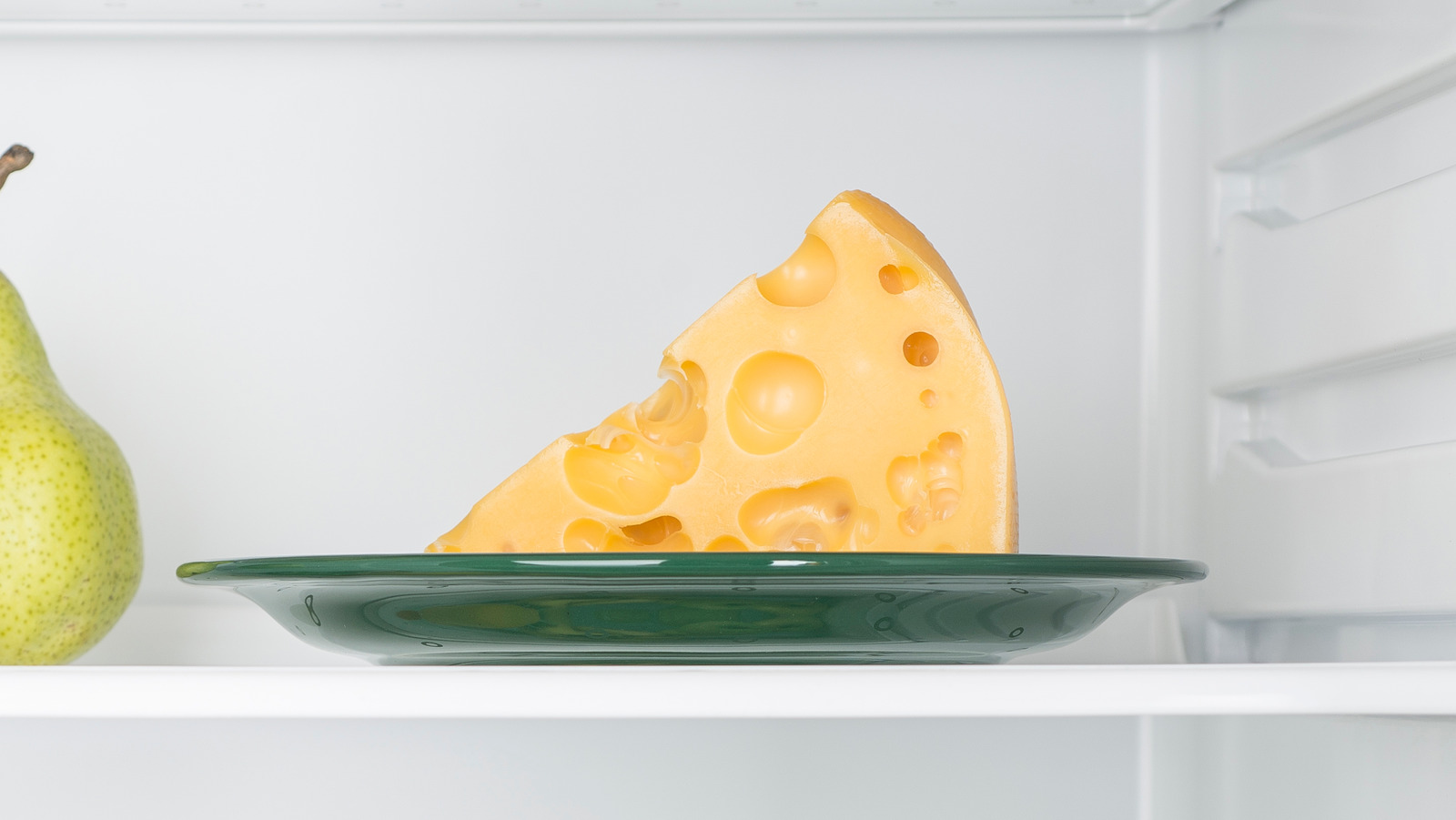

Articles
How To Store Cheese In Freezer
Modified: August 17, 2024
Learn how to properly store cheese in the freezer to maintain its freshness and quality. Check out our informative articles for helpful tips and techniques.
(Many of the links in this article redirect to a specific reviewed product. Your purchase of these products through affiliate links helps to generate commission for Storables.com, at no extra cost. Learn more)
Introduction
There’s nothing quite like the taste of a delicious cheese. From creamy brie to sharp cheddar, cheese is a versatile and beloved ingredient in many dishes. But what happens when you have a surplus of cheese and want to store it for later use? Freezing cheese can be a great option to extend its shelf life and preserve its flavor.
In this article, we will explore the ins and outs of freezing cheese. We’ll discuss why it’s beneficial to store cheese in the freezer and provide tips on how to choose the right cheese for freezing. Additionally, we’ll delve into the proper methods for preparing and storing cheese in the freezer, as well as how to thaw and use frozen cheese effectively.
Whether you’re a cheese enthusiast looking to stock up on your favorite varieties or a culinary enthusiast wanting to reduce waste, learning how to store cheese in the freezer can be a game-changer. So let’s dive in and discover the best practices for freezing cheese while maintaining its quality and flavor.
Key Takeaways:
- Extend the lifespan of your favorite hard and semi-hard cheeses by freezing them, preventing spoilage, and enjoying their flavors in various dishes for up to 3-6 months.
- Opt for proper wrapping, gradual thawing, and portion control to maintain the quality and taste of frozen cheese, ensuring its versatility and convenience in your culinary creations.
Read more: How To Store Cotija Cheese
Why Store Cheese in the Freezer?
When it comes to extending the shelf life of cheese, the freezer can be a valuable tool. Freezing cheese not only helps to preserve its taste and texture but also prevents it from spoiling. Here are a few reasons why you might consider storing cheese in the freezer:
- Longer Shelf Life: Cheese can have a relatively short shelf life, especially when stored in the refrigerator. Freezing cheese can significantly extend its lifespan, allowing you to enjoy your favorite varieties for a longer time.
- Preventing Spoilage: If you find yourself with more cheese than you can consume before it goes bad, freezing it can be a smart choice. By freezing cheese, you can prevent spoilage and avoid wasting this delectable ingredient.
- Economical: Buying cheese in bulk or taking advantage of a great sale can be a budget-friendly option. Freezing the excess cheese provides a cost-effective way to stock up and enjoy your favorite varieties without breaking the bank.
- Convenience: Having frozen cheese on hand can be incredibly convenient, especially for impromptu gatherings or when a recipe calls for a specific type of cheese. By freezing cheese, you can always have a variety of options readily available at your fingertips.
While freezing cheese offers several advantages, it’s important to note that not all cheeses are suitable for freezing. Certain types of cheese, such as soft cheeses like Brie or Camembert, may not freeze well and can undergo a change in texture and flavor. However, many semi-hard and hard cheeses can withstand the freezing process and maintain their quality when properly stored.
Now that we understand the benefits of freezing cheese, let’s explore how to choose the right cheese for freezing in the next section.
Choosing the Right Cheese for Freezing
Not all cheeses are created equal when it comes to freezing. Some types of cheese freeze better than others, retaining their flavor and texture even after being thawed. Here are a few things to consider when choosing the right cheese for freezing:
- Hard and Semi-Hard Cheeses: Hard and semi-hard cheeses, such as cheddar, Swiss, Gouda, and Parmesan, generally freeze well. These cheeses have a lower moisture content, which helps them withstand the freezing process without significant texture or flavor changes.
- Avoid Soft Cheeses: Soft cheeses, such as Brie, Camembert, and fresh cheeses like ricotta or goat cheese, are not ideal for freezing. These cheeses have a high moisture content and a delicate texture, making them prone to becoming grainy or mushy after being frozen and thawed.
- Consider Pre-Shredded or Pre-Sliced Cheese: If you frequently use shredded or sliced cheese in your recipes, consider buying them pre-shredded or pre-sliced. These versions are often treated with anti-caking agents, which can help maintain their texture and prevent clumping when frozen.
- Flavored or Aged Cheeses: Flavored or aged cheeses, such as smoked cheeses or aged Gouda, can be safely frozen. However, keep in mind that the flavor and aroma may become more pronounced after freezing, so it’s important to assess whether the intensified flavors will complement the dishes you plan to use them in.
When selecting cheese for freezing, it’s crucial to choose high-quality cheese that is in good condition. Avoid using cheese that is already nearing its expiration date or has any signs of mold or spoilage.
Now that we know which cheeses are suitable for freezing, let’s move on to preparing the cheese for freezing in the next section.
Preparing the Cheese for Freezing
Before freezing cheese, it’s important to properly prepare it to maintain its quality and prevent freezer burn. Follow these steps to prepare your cheese for freezing:
- Wrap it tightly: Start by wrapping the cheese tightly in plastic wrap or aluminum foil. The goal is to create an airtight seal around the cheese to prevent moisture loss and exposure to air. Wrapping each piece individually will also make it easier to thaw only the amount of cheese you need.
- Double bag for extra protection: To provide an additional layer of protection against freezer burn, place the wrapped cheese inside a freezer-safe plastic bag. Squeeze out any excess air before sealing the bag to create a vacuum-like environment.
- Label and date: Don’t forget to label the cheese with the name and date of freezing. This will help you keep track of the cheese’s age and ensure you use it within a reasonable time frame.
- Place in an airtight container if desired: If you prefer, you can place the wrapped and bagged cheese inside an airtight container before storing it in the freezer. This additional layer of protection can help prevent any potential odor transfer and keep the cheese well-sealed.
Remember to choose appropriate portion sizes when wrapping and freezing cheese, especially if you anticipate using smaller amounts in recipes. Freezing cheese in individual or smaller portions ensures you only thaw what you need, reducing waste and maintaining the quality of the remaining cheese.
Now that the cheese is properly prepared, we can move on to the different methods for storing cheese in the freezer. Learn about these methods in the next section.
Methods for Storing Cheese in the Freezer
There are multiple methods you can use to store cheese in the freezer, depending on the type of cheese and your personal preference. Here are some common methods for freezing cheese:
- Whole Block: If you have a whole block of cheese, you can freeze it as is. Wrap the block tightly in plastic wrap or aluminum foil, ensuring no air can get in. Place it inside a freezer-safe bag or airtight container to protect it further. Freezing cheese in this way is convenient if you plan on using the entire block for grating or slicing later.
- Shredded or Grated Cheese: Shredded or grated cheese is perfect for freezing in smaller portions. Spread out the shredded cheese on a baking sheet lined with parchment paper and place it in the freezer until the cheese is firm. Once firm, transfer the cheese into freezer-safe bags, removing as much air as possible before sealing. This method is ideal for easily portioning out cheese for recipes.
- Sliced Cheese: If you have sliced cheese, separate each slice with parchment paper or plastic wrap to prevent them from sticking together. Place the separated slices in a freezer-safe bag or container, ensuring it’s tightly sealed. This method allows you to thaw individual slices without needing to defrost the entire block.
- Cubed Cheese: For cheeses like feta or mozzarella that come in cubes, place them on a baking sheet lined with parchment paper and freeze until firm. Once firm, transfer the cubes to a freezer bag or container. Freezing cubed cheese separately allows for easy portion control and eliminates the need to defrost the entire batch at once.
Regardless of the method you choose, it’s important to keep the cheese in the coldest part of the freezer to maintain its texture and flavor. Avoid placing cheese near the door or in areas where temperature fluctuations are more likely to occur.
Now that you know how to store your cheese in the freezer, let’s move on to the next section to learn how to thaw and use frozen cheese effectively.
To store cheese in the freezer, wrap it tightly in plastic wrap or aluminum foil to prevent freezer burn. Place it in a resealable plastic bag and label with the date. Thaw in the refrigerator before using.
Read more: How To Store Gruyère Cheese
Thawing and Using Frozen Cheese
When it comes to thawing and using frozen cheese, there are a few guidelines to keep in mind to ensure the best results:
- Gradual Thawing: It’s best to thaw frozen cheese slowly in the refrigerator to minimize texture and flavor changes. Place the cheese in the fridge at least 24 hours before you plan to use it. This gradual thawing process helps the cheese retain its moisture and prevents it from becoming overly soft or mushy.
- Portion Control: If you froze the cheese in smaller portions, you can take out only what you need from the freezer. This allows you to thaw and use the desired amount without having to refreeze any unused portions.
- Avoid Refreezing: When cheese has been frozen and thawed, it’s best to avoid refreezing it. Each freeze-thaw cycle can affect the texture and quality of the cheese. If you have leftovers, it’s better to store them in the refrigerator and use them within a few days.
Once the cheese is fully thawed, it’s ready to be used in various dishes. Grated or shredded cheese can be directly incorporated into recipes, while sliced or cubed cheese can be enjoyed as is or used in sandwiches, salads, or cheese boards. Just like fresh cheese, frozen cheese adds flavor and richness to a wide range of culinary creations.
Remember that the texture of some cheeses may slightly change after being frozen and thawed. Soft cheeses may become crumbly or lose some of their creamy consistency, while harder cheeses may retain their original texture more effectively. However, the taste and versatility of the cheese remain intact, allowing you to enjoy its flavors in different ways.
Now that you know how to thaw and use frozen cheese, let’s move on to some tips for maintaining the quality of the cheese when freezing.
Tips for Maintaining Cheese Quality When Freezing
To ensure the best results when freezing cheese, here are some tips to help maintain its quality:
- Choose Fresh Cheese: Start with good-quality, fresh cheese when freezing. Cheese that is already past its prime may not freeze well and could result in a less desirable texture and flavor.
- Use Freezer-Safe Packaging: Proper packaging is key to preventing freezer burn and maintaining the cheese’s taste and texture. Ensure that the packaging you use is freezer-safe and provides an airtight seal.
- Avoid Temperature Fluctuations: Maintain a consistent freezing temperature to prevent any drastic changes in the cheese’s quality. Fluctuations in temperature can lead to the formation of ice crystals, which can affect the texture and taste of the cheese.
- Label and Date: Always label the cheese with the name and date of freezing. This helps you keep track of the cheese’s age and ensures you use it within a reasonable time frame.
- Properly Wrap and Seal: When wrapping the cheese, make sure it is tightly sealed to prevent air and moisture from coming into contact with it. This helps to maintain its freshness and prevents freezer burn.
- Use Frozen Cheese Within a Reasonable Time: While frozen cheese can retain its quality for several months, it’s best to use it within 3-6 months for optimal taste and texture.
- Consider Thawed Cheese for Melting: Keep in mind that previously frozen and thawed cheese may have a slightly different texture, making it ideal for melting in recipes like casseroles, sauces, and grilled cheese sandwiches.
Following these tips will help you preserve the quality of your frozen cheese and ensure that it maintains its delicious taste and texture when used.
Now that we have covered various aspects of freezing cheese, let’s move on to address some frequently asked questions about freezing cheese.
Frequently Asked Questions (FAQs)
Here are some commonly asked questions about freezing cheese:
- Can all types of cheese be frozen?
- How long can you freeze cheese?
- Can you freeze pre-packaged sliced cheese?
- Is freezing cheese the same as refrigerating it?
- Can frozen cheese be eaten raw?
- Can you freeze cheese with rinds?
No, not all types of cheese are suitable for freezing. Soft cheeses like Brie or Camembert tend to undergo texture and flavor changes when frozen. However, hard and semi-hard cheeses like cheddar, Swiss, and Gouda freeze well and maintain their quality.
Cheese can be safely frozen for several months, typically around 3-6 months. While the cheese may still be safe to eat beyond this time, there may be some degradation in quality.
Yes, pre-packaged sliced cheese can be frozen. Ensure that you separate the slices with parchment paper or plastic wrap to prevent them from sticking together, and then place them in a freezer-safe bag or container.
Freezing cheese is different from refrigerating it. Freezing cheese at a lower temperature helps to halt the growth of bacteria and preserve its freshness, while refrigeration only slows down the process.
Frozen cheese can be thawed and consumed raw, but keep in mind that the texture of some cheeses may change after freezing. While the taste will stay intact, soft cheeses may become crumbly, and harder cheeses may retain their original texture more effectively.
Yes, you can freeze cheese with rinds. However, keep in mind that the rind may become slightly tougher after freezing. It’s best to assess whether a frozen cheese’s rind is suitable for your desired use before including it in a recipe.
These answers should provide some clarity on commonly asked questions about freezing cheese. If you have any more specific concerns or queries, it is recommended to refer to the packaging or consult with cheese experts for further guidance.
Now, let’s wrap up this article.
Conclusion
Freezing cheese can be a fantastic way to extend its shelf life, prevent waste, and ensure you always have your favorite varieties on hand. By following the proper methods for storing, thawing, and using frozen cheese, you can maintain its quality and enjoy it in various dishes.
When choosing cheese for freezing, opt for hard and semi-hard varieties that have lower moisture content. Soft cheeses, on the other hand, may not freeze well and can experience texture and flavor changes. Properly wrapping and sealing the cheese before freezing is crucial to prevent freezer burn and maintain its freshness.
When you’re ready to use the frozen cheese, thaw it slowly in the refrigerator for best results. Whether it’s grated, sliced, or cubed, frozen cheese adds flavor and versatility to recipes or can be enjoyed on its own.
Remember to label and date the cheese, and use it within a reasonable timeframe to ensure optimal taste and texture. It’s also important to note that previously frozen cheese should not be refrozen.
By following these guidelines and tips, you can confidently store cheese in the freezer and enjoy its deliciousness long after its initial purchase. So go ahead, stock up on your favorite cheeses, freeze them properly, and savor their flavors whenever the craving strikes!
Thank you for reading this comprehensive guide on how to store cheese in the freezer. We hope you found it informative and helpful. Now it’s time to enjoy the convenience of frozen cheese without compromising on taste and quality.
Frequently Asked Questions about How To Store Cheese In Freezer
Was this page helpful?
At Storables.com, we guarantee accurate and reliable information. Our content, validated by Expert Board Contributors, is crafted following stringent Editorial Policies. We're committed to providing you with well-researched, expert-backed insights for all your informational needs.
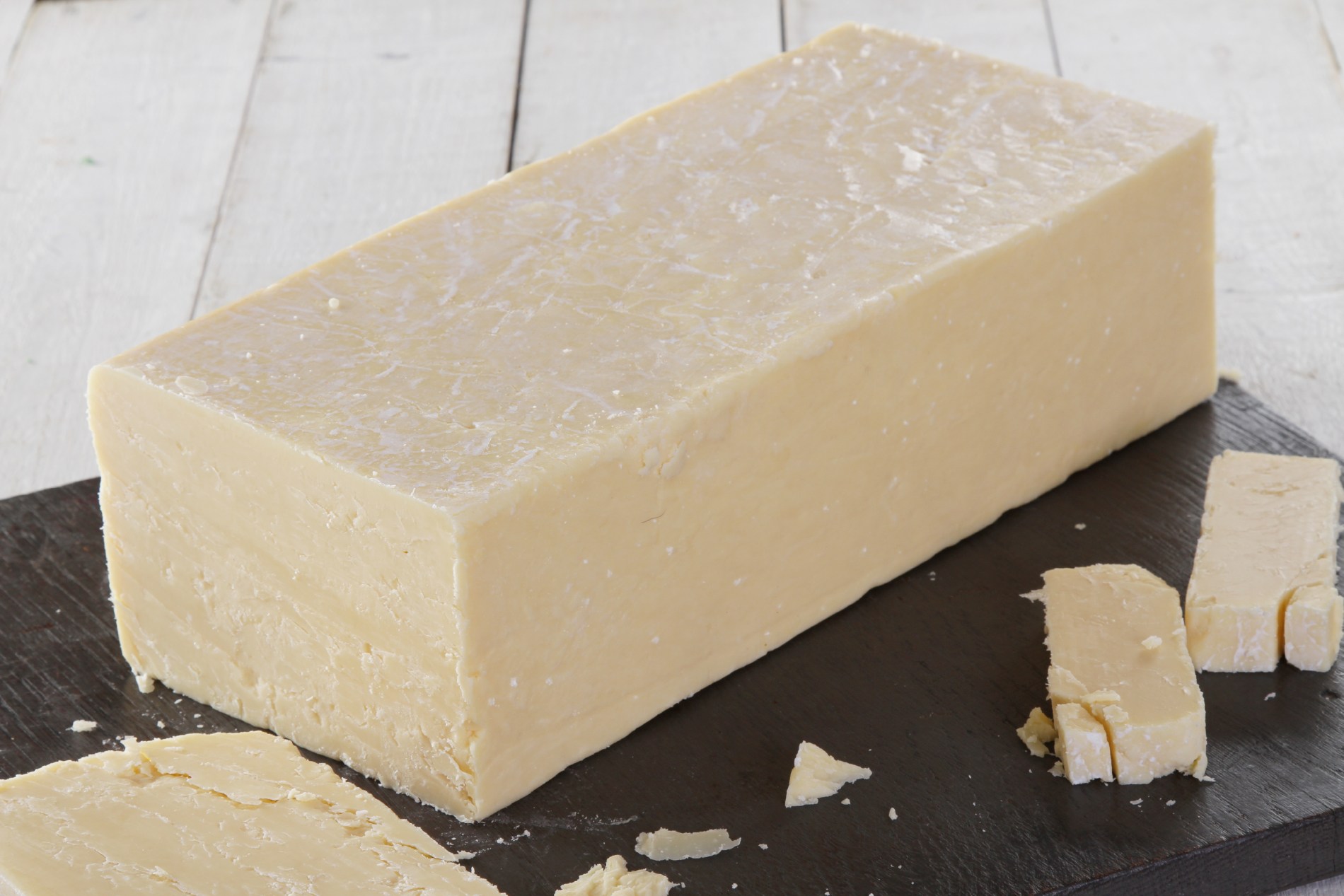




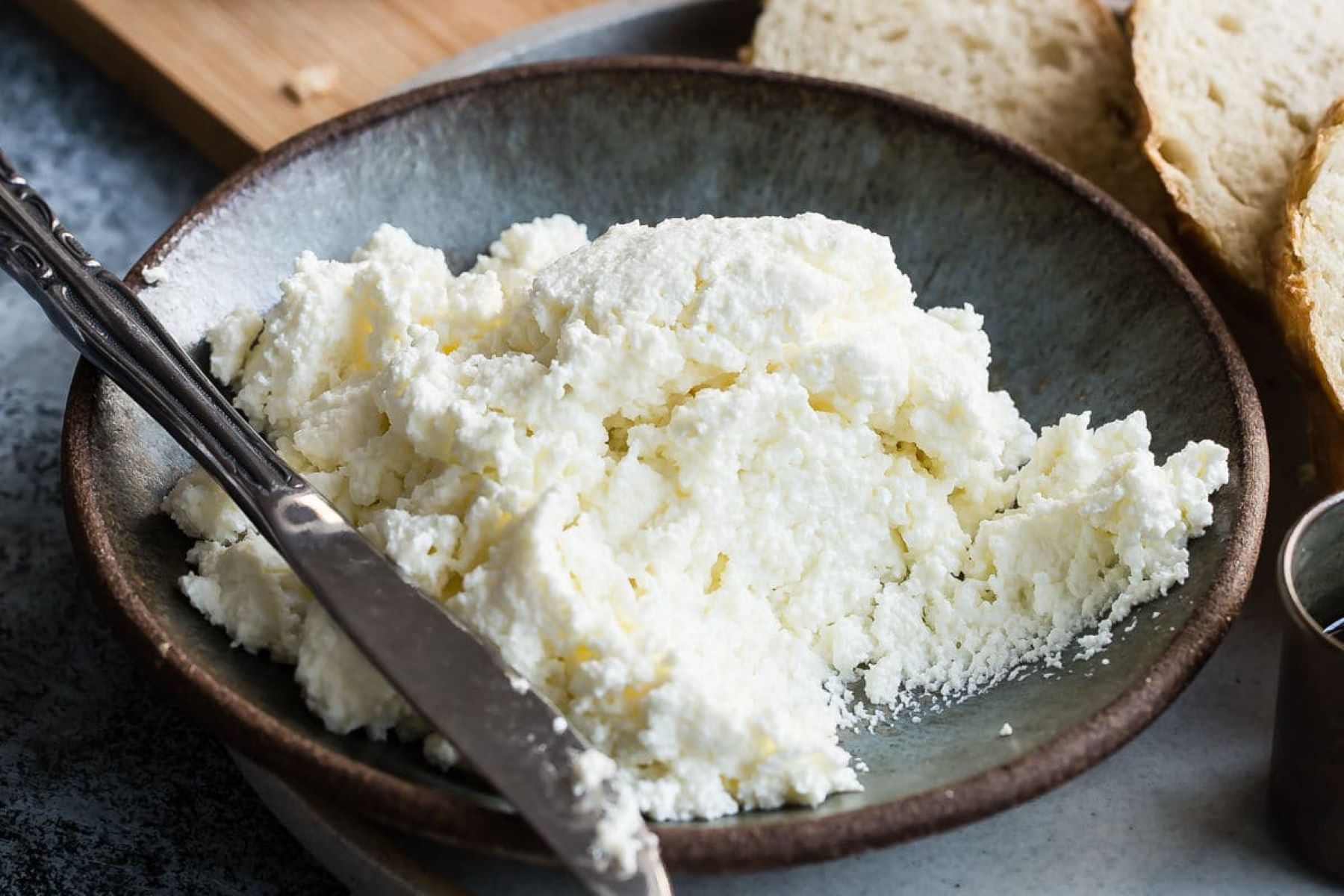
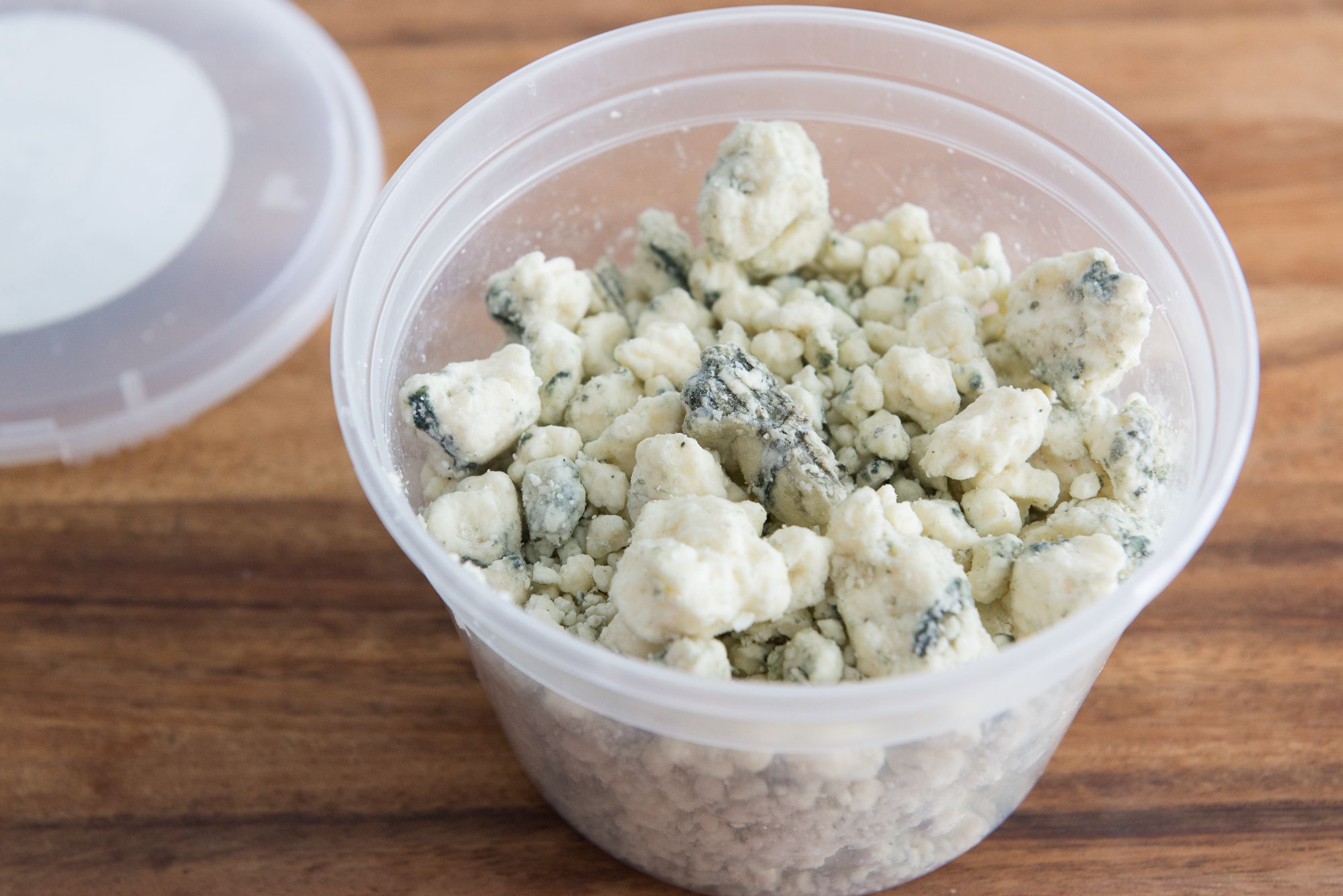



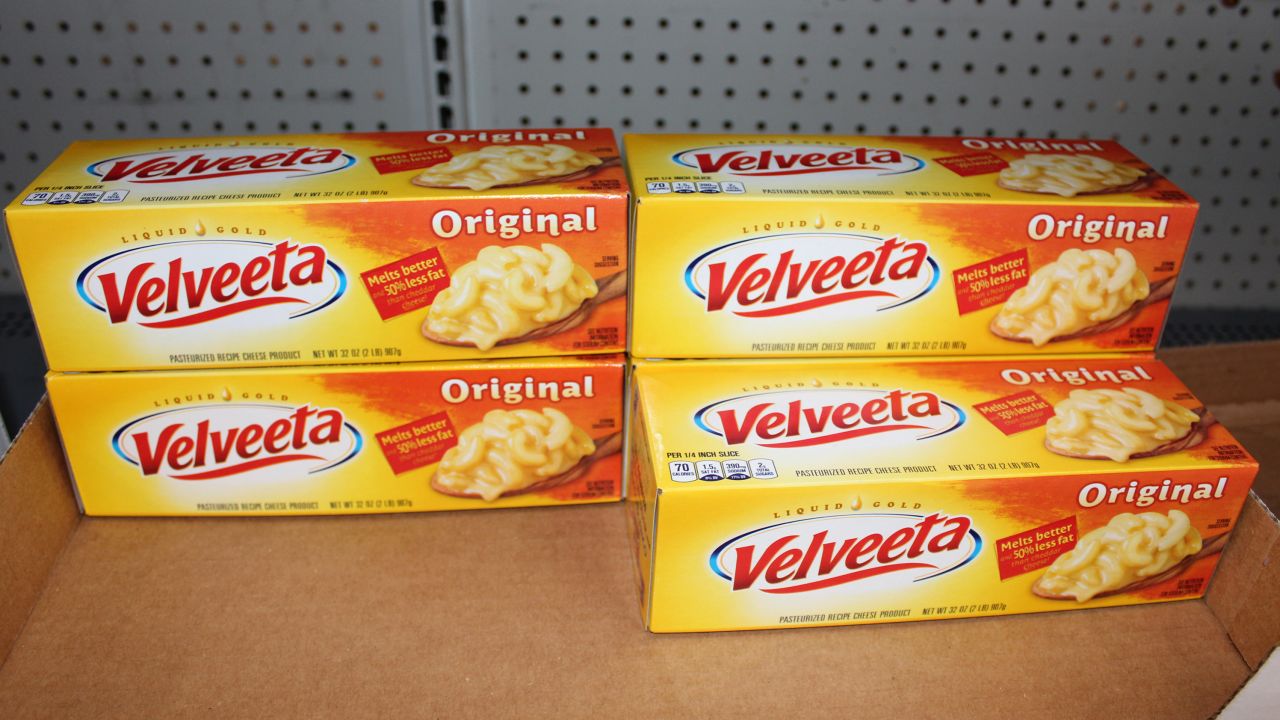


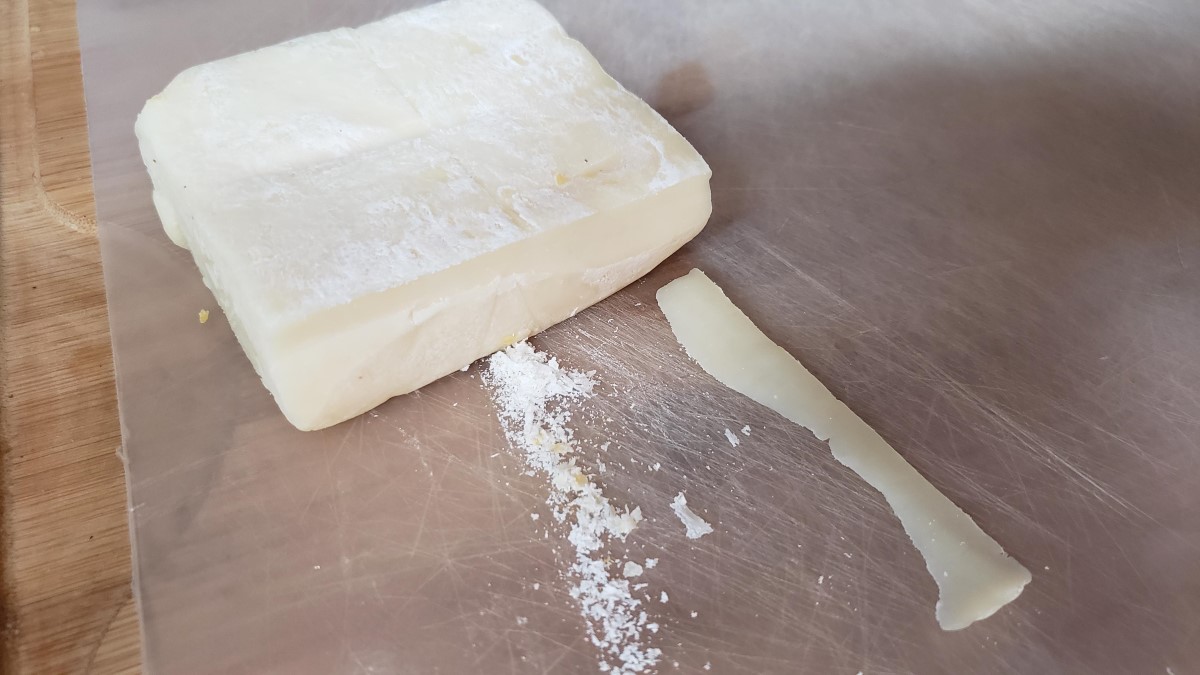

0 thoughts on “How To Store Cheese In Freezer”